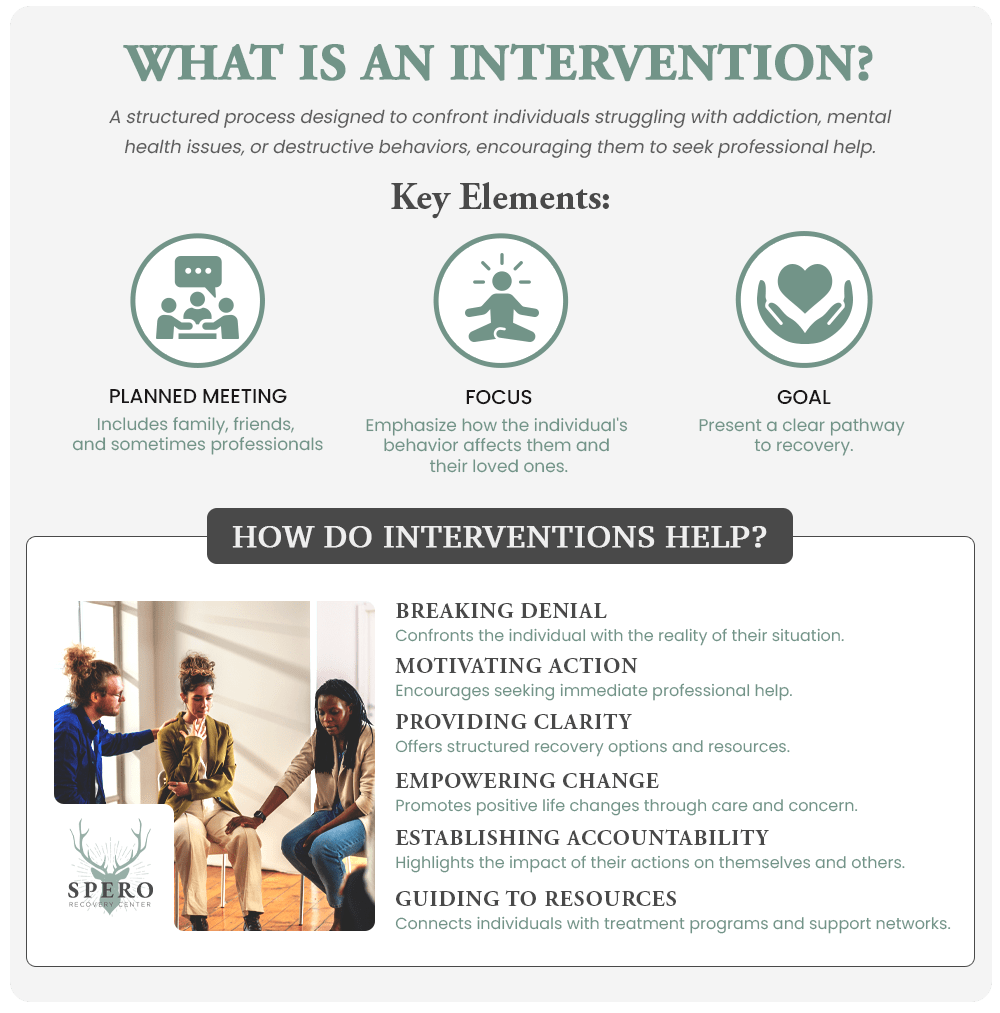When overcoming addiction, interventions stand out as powerful tools for initiating change and guiding individuals toward the path of recovery. This compassionate yet assertive approach aims to break through denial, fostering awareness about the impact of addiction on both the individual and their relationships. Interventions serve as pivotal moments that encourage individuals to seek help, offering them a chance to embark on the transformative journey of recovery.
Our Colorado rehab also plays a crucial role in guiding individuals toward lasting recovery. At Spero Recovery Center men beat their addictions through the completion of our immersive 12-step program and receive life-long support through our alumni program and events. Learn more about how interventions and our addiction recovery program can help you.






